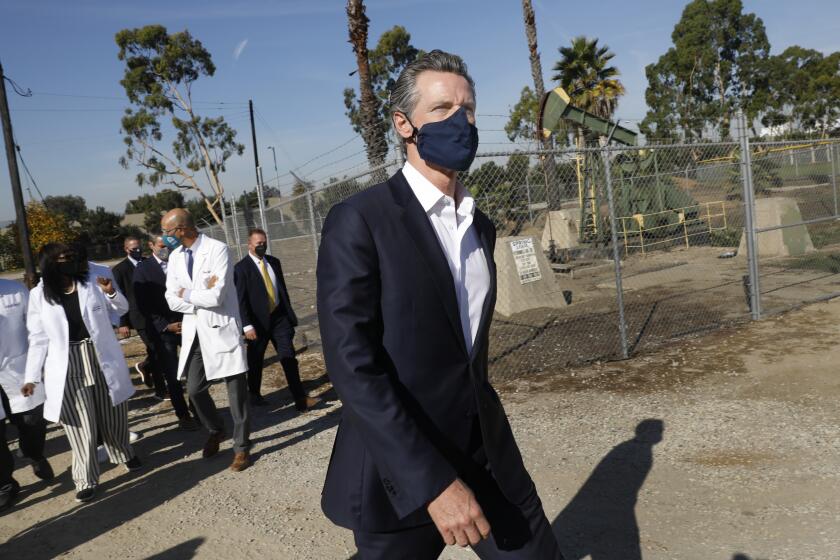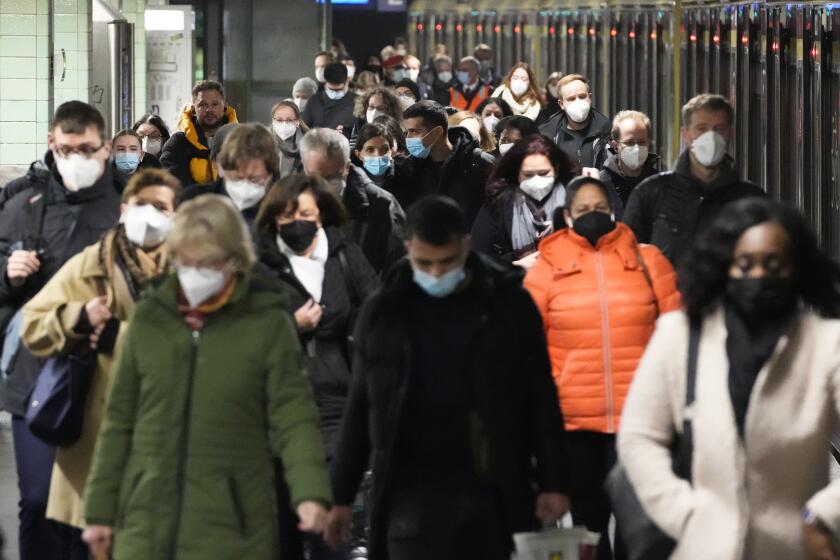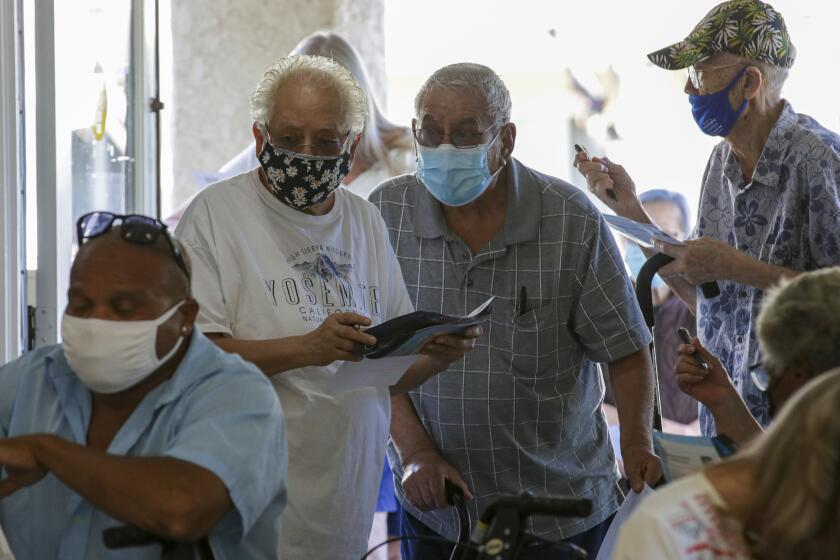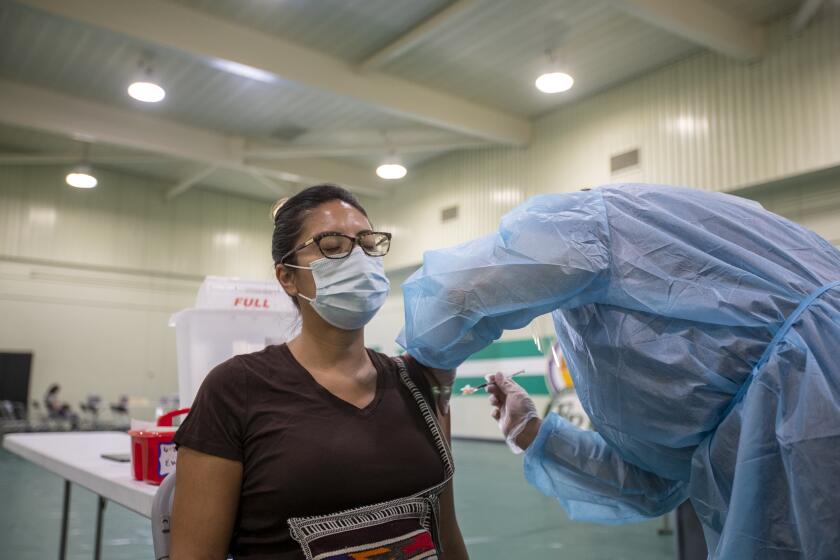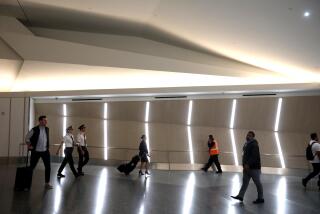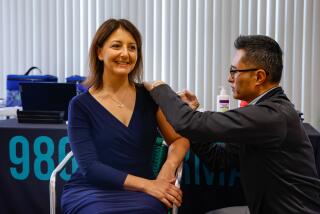L.A. officials warn that COVID vaccine protections wane as holidays approach
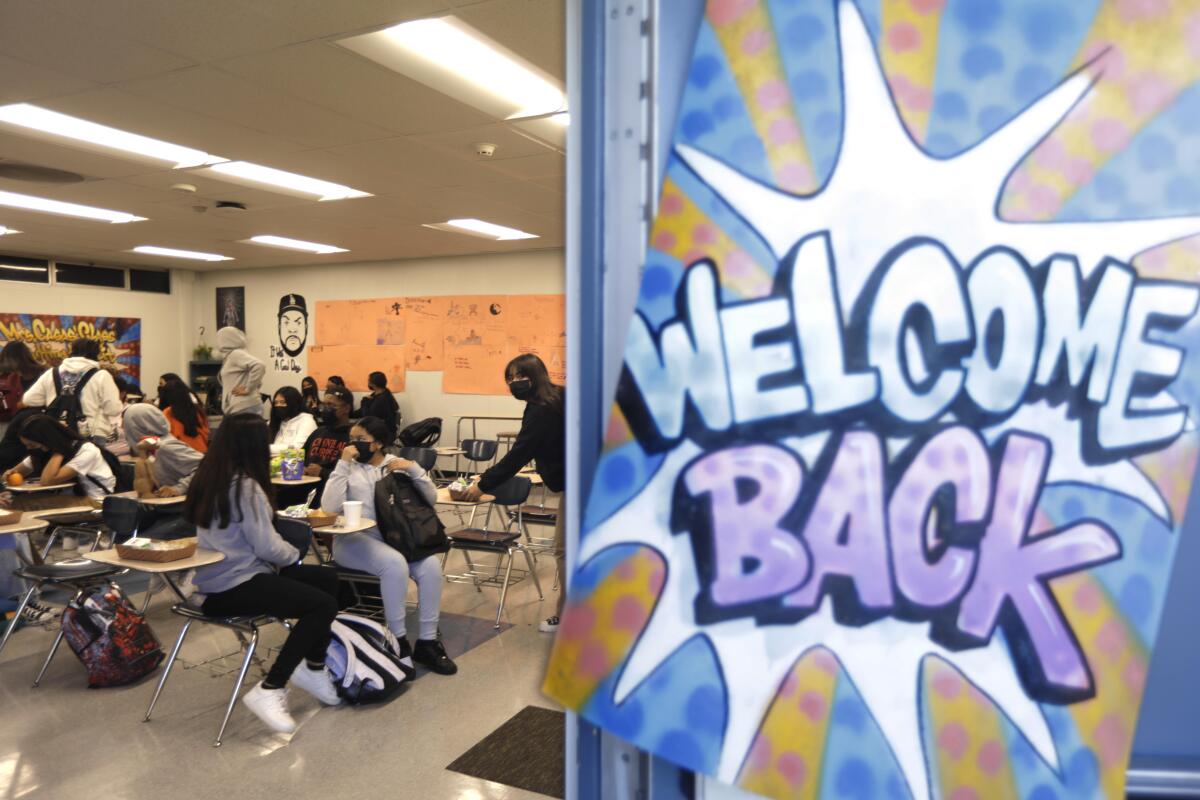
- Share via
Angelenos are busy prepping for holiday parties, shopping and family gatherings.
But Los Angeles County officials worry that behavior also could lead to another winter surge of coronavirus as people who got vaccinated earlier this year lose immunity just as they get together more — including in social situations and going back to work.
So officials are urging the vast majority of adults to get a booster shot as soon as possible.
Why the urgency?
Without a booster, health officials warn, vaccinated people will be at greater risk of breakthrough infections, which can lead to hospitalizations and death among the most vulnerable.
“If you think you will benefit from getting a booster shot, I encourage you to go out and get it,” Dr. Mark Ghaly, California’s secretary of health and human services, said during a briefing last week.
Some young adults have returned to workplaces or are “certainly out and about enjoying all that L.A. County has to offer, and we’d like them to continue to do that,” L.A. County Public Health Director Barbara Ferrer said. However, she warned, “they do have waning protection. And unfortunately, if they get infected, they can infect others who really could end up with very serious illness.”
“So, yes, I do recommend that, if it’s your time — because you’re six months out from that second dose of Pfizer or Moderna, two months out from receiving Johnson & Johnson, you’re 18 or older and you’re not living in that bubble — please come in and get your booster,” Ferrer said
As Europe copes with a COVID surge, battle lines are forming between the vaccine-willing and vaccine-resistant. Sound familiar?
Which adults should wait on boosters?
“The only exception would be a person who lives in a bubble: You’re in your house, you telework, you never leave, you don’t live with anybody, you don’t really have a lot of risks, nor are you creating a lot of risk,” Ferrer said during a briefing Friday.
But she doubts anyone is in that category.
“I don’t know anybody living in that world,” she said.
Ferrer said she recommends that any vaccinated adult get a booster as long as at least six months have passed since their second dose of the Pfizer-BioNTech or Moderna vaccination series, or at least two months have passed following a Johnson & Johnson vaccination.
Where to find booster shots?
The state’s MyTurn site offers residents the ability to seek appointments. Under a permissive interpretation of state guidance issued recently, virtually all adults can qualify for the booster shot by selecting that they are “at high risk for COVID-19 exposure due to occupation or institutional setting” because they live in an area that has been heavily affected by COVID.
Boosters are also available at pharmacies, doctor’s offices and county-run vaccination centers.
Federal health officials aren’t giving any specific recommendations, but there are options for COVID-19 boosters, and it’s OK if you mix vaccines.
What about the criteria?
Federal guidance says adults can get a booster if they are at increased risk of COVID-19 exposure because of where they work or live.
Traditionally, the “increased risk” criteria outlined by the U.S. Centers for Disease Control and Prevention have been applied to those who work in places such as hospitals, schools, grocery stores or factories — or those who live in congregate settings like prisons or homeless shelters.
That criterion, Ferrer said, can apply to:
- Going to work and being around other people;
- Living with people who cannot get vaccinated, such as babies or young children, or who are at high risk of serious illness should they get infected, such as the elderly or those who are overweight or pregnant, are a current or former smoker or have high blood pressure, diabetes, asthma, depression or an alcohol- or drug-use disorder; and,
- Being in a community that has been hit hard by COVID-19 or is seeing high numbers of coronavirus cases — “which, at this point, is all over L.A. County,” Ferrer said.
Experts at the Centers for Disease Control and Prevention have set aside herd immunity as a national target for ending the pandemic.
Vaccinations so far
During the first week of November, L.A. County administered 182,000 booster shots or additional doses to immune-compromised people and slightly more than 43,000 first doses of vaccine and 42,000 second doses.
At this pace, L.A. County won’t achieve its goal of fully vaccinating at least 80% of residents age 12 and up until next year. Hitting that goal is one of the county’s criteria to lift its mask mandate for indoor public areas.
About 73% of Angelenos in that age range have completed their initial inoculation series, county data show.
More to Read
Sign up for Essential California
The most important California stories and recommendations in your inbox every morning.
You may occasionally receive promotional content from the Los Angeles Times.
